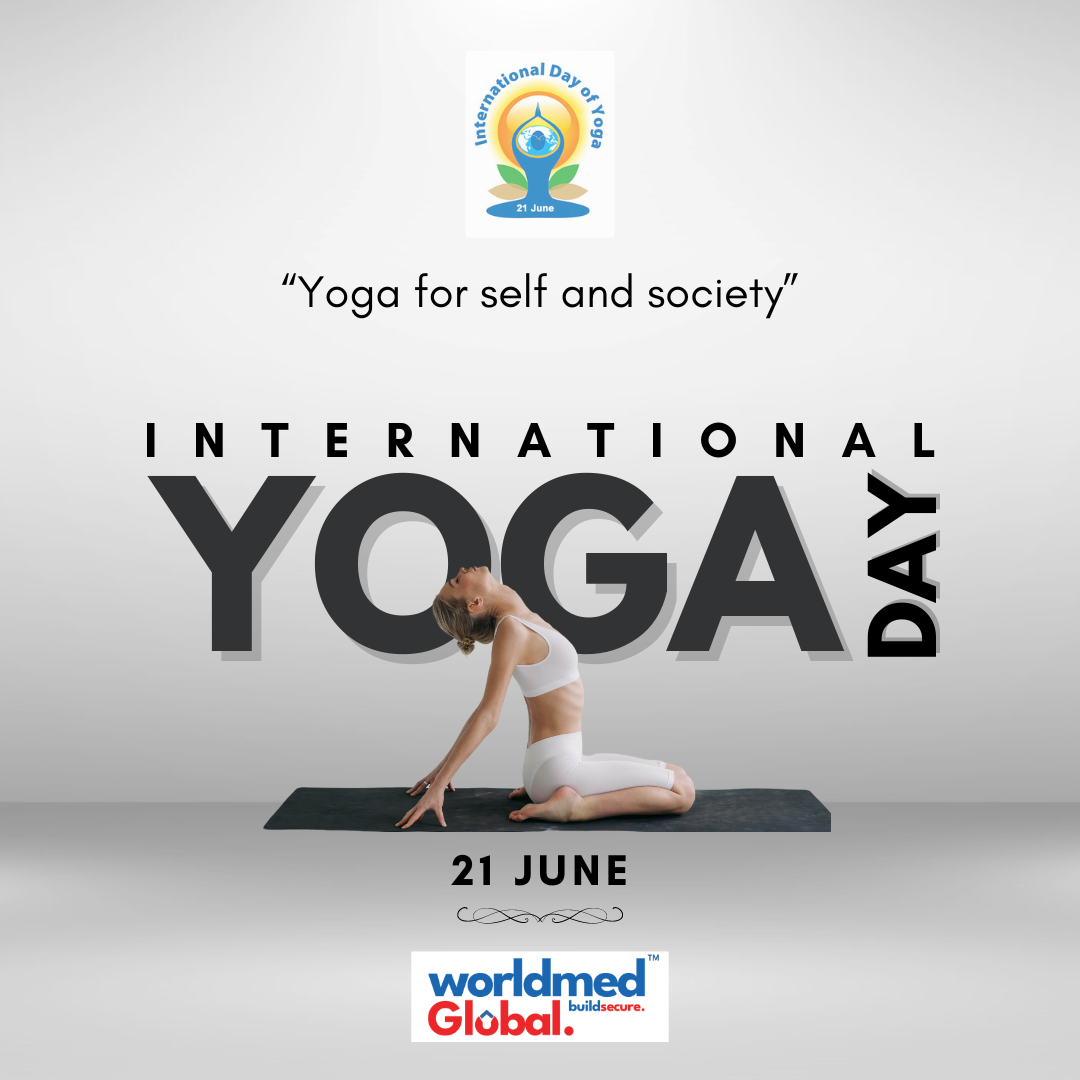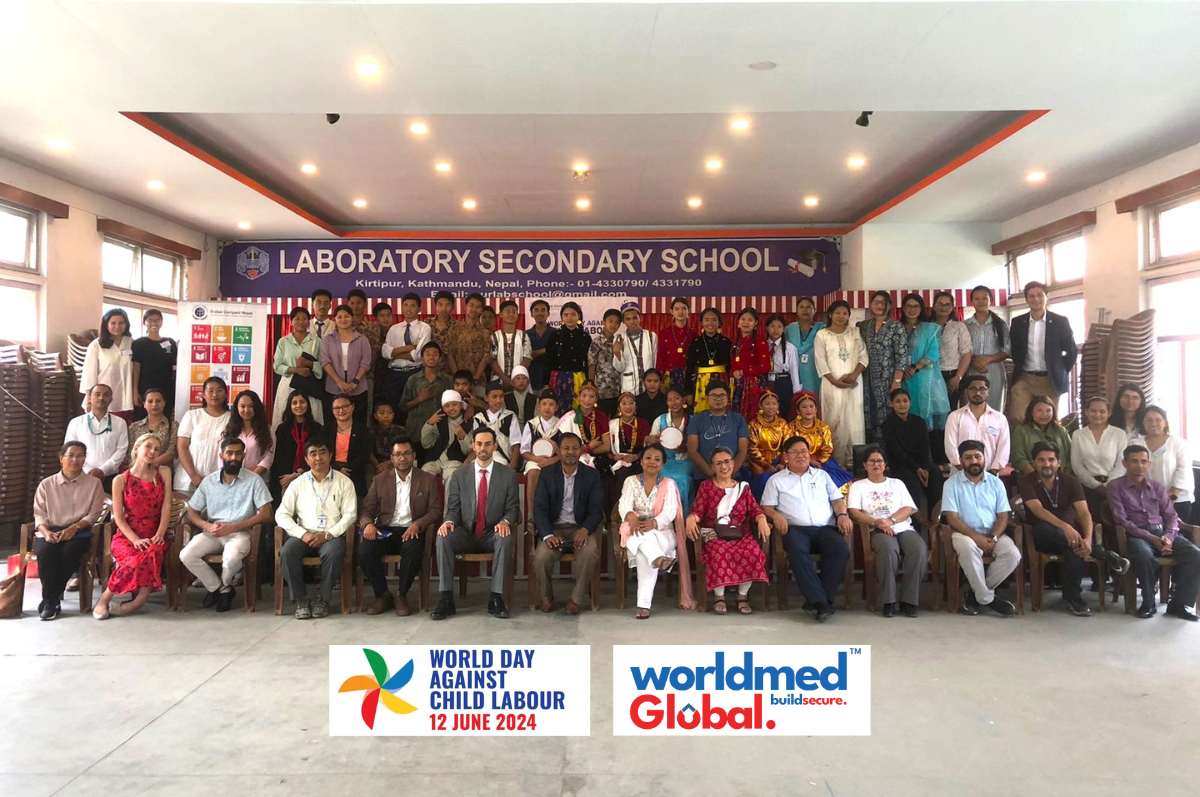Worldmed join UN Global Compact & Sustainable Development Goals
Through its outlay, activities, and innovative focus, Worldmed is a responsible process and attentive to its environment & SDGs.
Echoing the words of UN Secretary-General António Guterres, climate change is undoubtedly the defining issue of our time. We are at a critical juncture, where climate change is moving faster than we are and every half-degree makes a world of difference. The private sector has a key role to play in sending strong market signals and scaling innovative solutions to present concrete, realistic plans towards a zero-carbon economy.
Sustainable Development Goals (SDGs)
The Sustainable Development Goals (SDGs), also known as the Global Goals, were adopted by all United Nations Member States in 2015 as a universal call to action to end poverty, protect the planet and ensure that all people enjoy peace and prosperity by 2030 which has set the course for the future of the world with its 17 SDGs which are integrated—that is, they recognize that action in one area will affect outcomes in others and that development must balance social, economic, and environmental sustainability. They are intended to ensure healthy nutrition and a life free from poverty and also promote access to education and health infrastructure for all where 139 countries have signed up to this vision of the future.
UN Global Compact
Launched on 26 July 2000 by UN Secretary-General Kofi Annan, the Global Compact seeks to encourage businesses, UN agencies, the labor market, and NGOs to work together to integrate 10 universal principles on human rights, labor, the environment, and the fight against corruption. The Global Compact is based on the rules of international law adopted by the majority of countries, such as the Universal Declaration of Human Rights and the standards promoted by the International Labor Organization. The Ten Principles of the United Nations Global Compact are derived from: the Universal Declaration of Human Rights, the International Labour Organization’s Declaration on Fundamental Principles and Rights at Work, the Rio Declaration on Environment and Development, and the United Nations Convention Against Corruption.
The Ten Principles of the UN Global Compact
Derived from core United Nations conventions and declarations, the Ten Principles of the UN Global Compact are recognized and endorsed in numerous intergovernmental resolutions and outcome documents, including General Assembly resolutions. To join the UN Global Compact, a company’s highest-level executive publicly commits to the Secretary-General that the company will take a responsible, principle-based, and integrated approach to address United Nations development goals guided by the Principles, signaling the company’s potential to be a strong, long-term partner of the Organization. The Ten Principles of the UN Global Compact are:
Human Rights
Principle 1: Businesses should support and respect the protection of internationally proclaimed human rights; and
Principle 2: make sure that they are not complicit in human rights abuses.
Labour
Principle 3: Businesses should uphold the freedom of association and the effective recognition of the right to collective bargaining;
Principle 4: the elimination of all forms of forced and compulsory labor;
Principle 5: the effective abolition of child labor; and
Principle 6: the elimination of discrimination in respect of employment and occupation.
Environment
Principle 7: Businesses should support a precautionary approach to environmental challenges;
Principle 8: undertake initiatives to promote greater environmental responsibility; and
Principle 9: encourage the development and diffusion of environmentally friendly technologies.
Anti-Corruption
Principle 10: Businesses should work against corruption in all its forms, including extortion and bribery.
With more than 9,500 companies and 3,000 non-business signatories based in over 160 countries—including a majority based in developing countries—and 70 local networks, we are spreading the word far and wide that businesses everywhere can play an important role in improving our world. By bringing to the table a diverse range of stakeholders from government, investor groups, academia, civil society, and beyond, we provide opportunities for strong partnerships and a framework through which the private sector can take concrete action to do business responsibly and keep its commitments to society.
As the current United Nations Secretary-General, António Guterres, has said, “The private sector can and must play a central role in this effort by advancing international cooperation, engaging in public-private partnerships, finding innovative solutions to shared challenges and doing business responsibly.”
At this pivotal moment in United Nations development system reform, taking partnerships to the next level has never been more important. A recent study shows that while 100 percent of United Nations leaders surveyed believe that greater collaboration across sectors will be critical in advancing the 2030 Agenda for Sustainable Development, only 59 percent think that the Organization is currently doing enough to engage with the private sector.1
Transforming Partnerships for the SDGs
In the UN Global Compact-Accenture Strategy CEO Study, the largest study of CEO opinions on sustainability, we described an emerging pathway for business on sustainability. The adoption of the Sustainable Development Goals, said CEOs, gave businesses a clear mandate and roadmap to scale up their efforts.
The following contents are retrieved from the respective website of UN, UNGC, and related website. The views expressed by the respective article, content, and names shown and the photos used in this article, do not necessarily imply official endorsement by Worldmed. Photo Credit: Google











